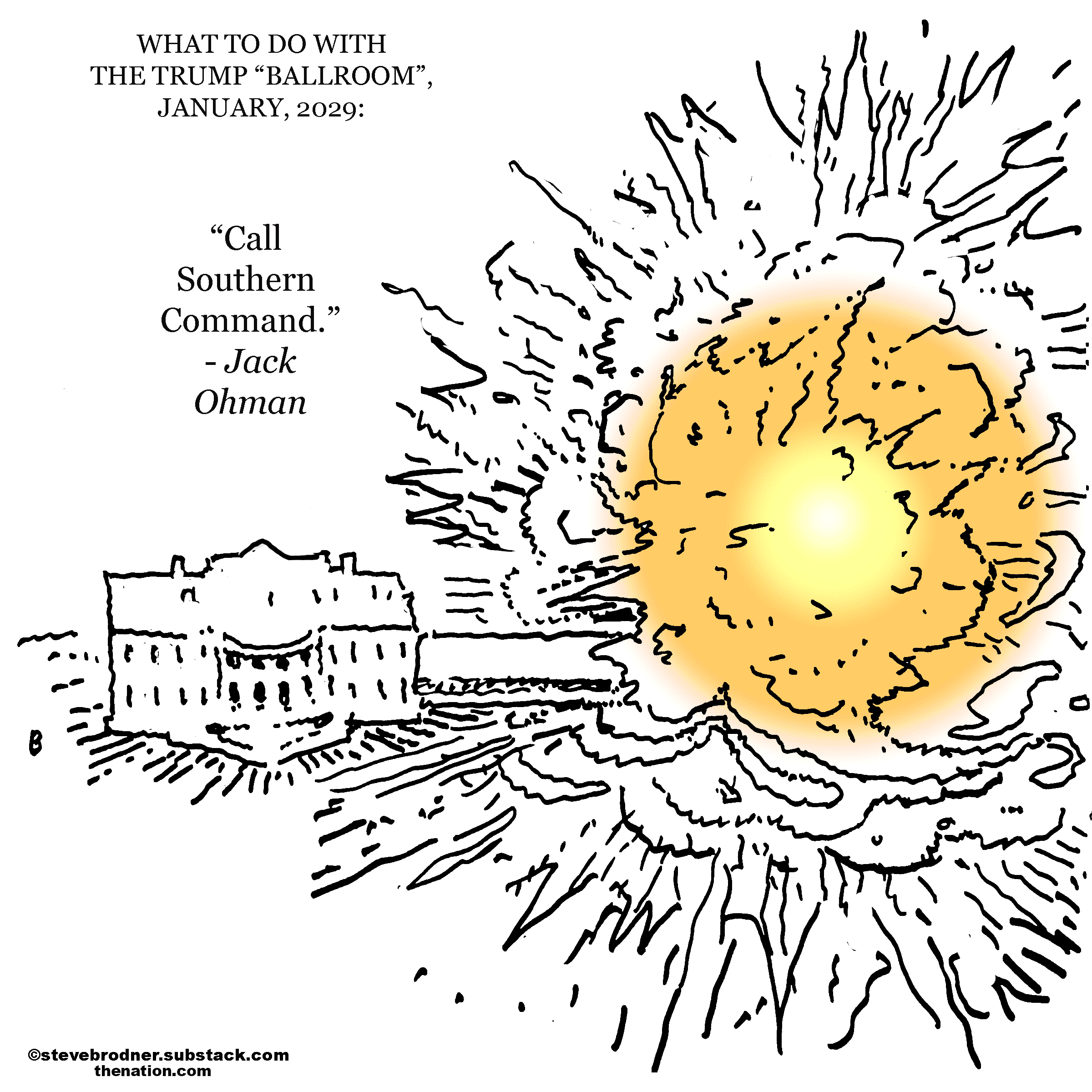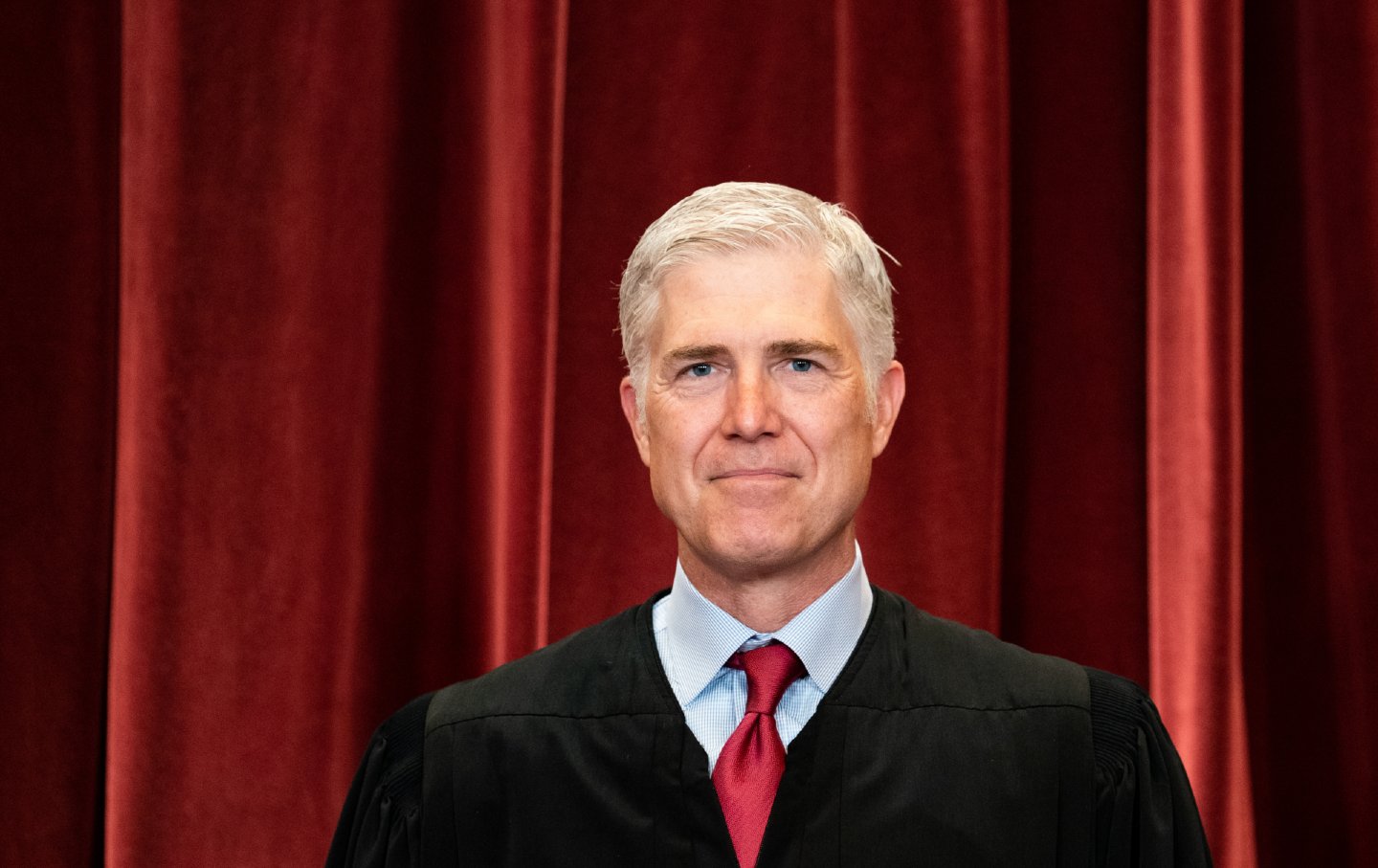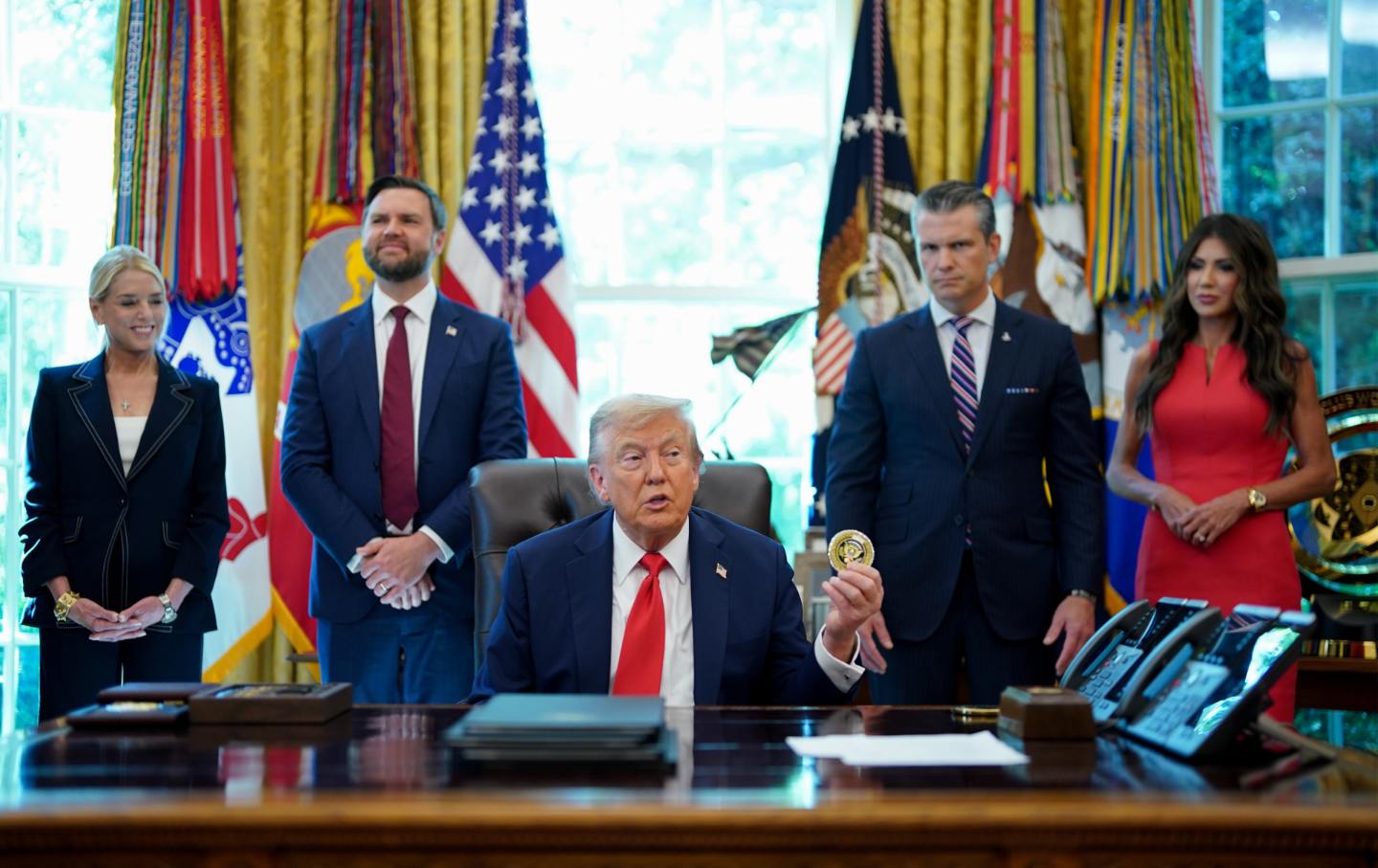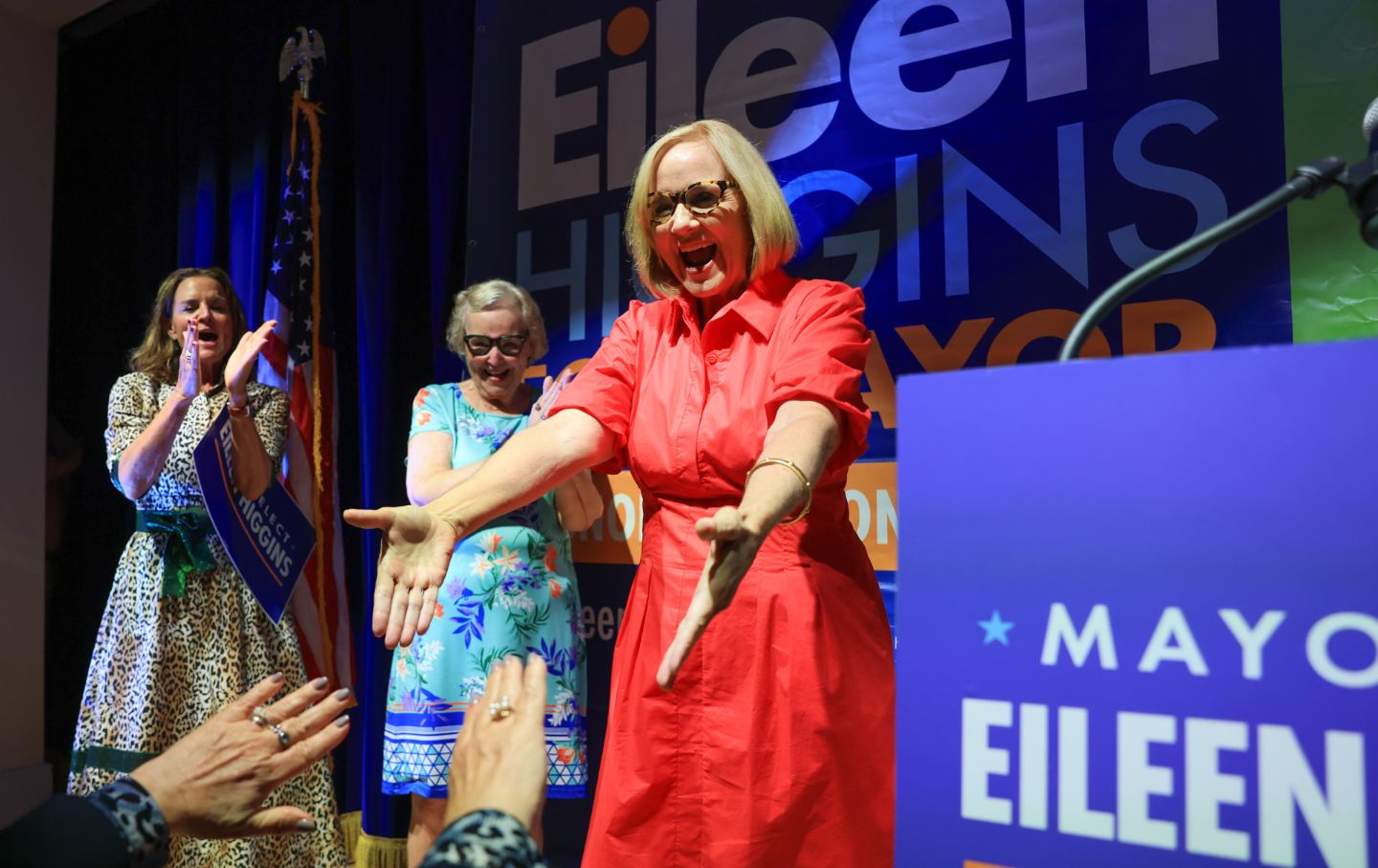In 2024, the Pundits Are Wronger Than Ever
Most of the predictions, advice, and scolding emanating from the glow of TV news this year have proved flat-out wrong. Democrats should stop listening once and for all.

It’s premature to hazard any guesses about the outcome of the 2024 presidential campaign, but we can at least single out one major contribution to the nation’s civic health: At virtually every turn, this election cycle has proved pundit wisdom stupendously and gloriously wrong.
Start with the big-picture structural forecasting. It’s long been a shibboleth among sober election observers that a few narrow indicators of economic growth render the national election result a foregone conclusion: If employment and wages are up, and inflation on a downward slope, the party in power will coast to victory. That truism was among the first casualties of Joe Biden’s abortive reelection bid. Voters disapproved of his handling of the economy, even though the major economic indicators reached historic highs. And attesting to just how far public perceptions of such issues now diverge from the playbook lovingly compiled by rational-choice political scientists, Joe Biden’s successor on the Democratic ticket, Vice President Kamala Harris, is outpolling Donald Trump in almost every economic category, despite representing the same suite of policy measures that Biden did.
Now proceed to the horse race. Largely because of Biden’s stagnant approval numbers, the pundit caste announced early on that the race was Trump’s to lose and that the third-time candidate was exhibiting some long-overdue discipline as a campaigner. Commentators marveled that the showboating former reality-TV hack mostly managed to avoid interrupting Biden’s doomed effort to rebound from his disastrous June debate performance. After Trump survived July’s assassination attempt, the same chorus clamored to declare that the newly chastened candidate had discovered a statesmanlike affection for national unity. This notion was taken as such an article of faith that many news outlets used it to preprogram their coverage of Trump’s speech before the Republican National Convention in Milwaukee—even though said speech turned out to be the same spittle-flecked display of self-absorption and grievance politics on autopilot that Trump has been delivering from the stump since 2015. (The candidate himself supplied the last word on this delusional theme when he told a Minnesota rally crowd that, if anything, “I’ve gotten worse” on the sacrosanct cause of national unity since being shot at.)
That coincided with a weeks-long bout of institutional paralysis among the Democrats, as Biden and party leaders tensely navigated the president’s eventual exit from the ticket behind closed doors. And all the while, the unprecedented prospect of a candidate swap triggered an epidemic case of pundit vapors, with Biden dead-enders forecasting electoral disaster if he stepped aside. The liberal commentator David Roberts, for example, composed a viral Twitter thread gaming out certain calamity for a post-Biden ticket. The American University political scientist Allan Lichtman—an academic pundit mascot whose claim to fame is having called the results of nine of the past 10 presidential elections in advance—solemnly invoked the ironclad benefits of “the incumbency advantage” in his 13-point “keys to the White House” model before any and every available cable news camera, and said that a Harris candidacy would be unlikely to prevail. When public response to the Harris campaign quickly discredited Lichtman’s initial read, the good professor revised his model to make it follow the clear trends on the ground. There’s a reason, after all, that Lichtman’s subdiscipline of presidential history exists only on television.
After Democrats promptly rallied behind Harris’s candidacy and boosted it dramatically in the polls, the nation’s political sages trained their forensic expertise on her choice of a running mate. Here, the well-flogged dictates of difference-trimming centrism—the household god of the pundit elite—had to take hold, at last. Harris clearly should have chosen Pennsylvania Governor Josh Shapiro or Arizona Senator Mark Kelly, via the combined mandates of minding the electoral map and appealing to swing voters. Both Kelly and Shapiro offered crucial geographic breadth for the former California senator and would nudge the ticket rightward on key issues: support for Israel and school privatization in Shapiro’s case, immigration and labor in Kelly’s. Should Harris choose Minnesota Governor Tim Walz, she’d forfeit these obvious advantages and sacrifice her early campaign momentum. When Harris landed on Walz, furrowed-browed commentators once more gasped and sighed in unison. (“With Walz, Harris Passes on a Chance to Redefine Herself” was the headline of one such lamentation by the New York Times polling guru Nate Cohn.)
By now, you surely know the rest of the story: Contra the counsel of the experts, Harris continued to build on her surge in public support, including most especially in Pennsylvania and Arizona, the exotic swing states where Shapiro and Kelly were held to exert mystic election-shaping powers. Walz’s solidly prairie-populist record proved no hindrance to the candidate’s dramatic expansion of the electoral map. The Harris-Walz ticket also reduced Trump’s hold on the white working-class vote, making short work of yet another plank of consensus-minded certitude that has driven a monotonous drumbeat of dispatches from heartland diners for the past nine years.
This set of pundit miscalls has to do with something bigger than the profession’s well-documented insularity and lack of basic intellectual curiosity. Because here’s the thing about the policy initiatives shared by Harris, Walz, and Biden: They’re incredibly popular. Apart from defense and immigration, polls favor the Democratic position on every major policy front. And even on immigration, basic Democratic-backed reforms such as the DREAM Act win overwhelming margins of public support. Just why that program doesn’t regularly prevail in successive presidential cycles is a tangled mystery that fuels a cottage industry in public speculation and scholarship. But here’s one Occam’s-razor explanation worth considering: Maybe party leaders are paying too much attention to the punditocracy.
Disobey authoritarians, support The Nation
Over the past year you’ve read Nation writers like Elie Mystal, Kaveh Akbar, John Nichols, Joan Walsh, Bryce Covert, Dave Zirin, Jeet Heer, Michael T. Klare, Katha Pollitt, Amy Littlefield, Gregg Gonsalves, and Sasha Abramsky take on the Trump family’s corruption, set the record straight about Robert F. Kennedy Jr.’s catastrophic Make America Healthy Again movement, survey the fallout and human cost of the DOGE wrecking ball, anticipate the Supreme Court’s dangerous antidemocratic rulings, and amplify successful tactics of resistance on the streets and in Congress.
We publish these stories because when members of our communities are being abducted, household debt is climbing, and AI data centers are causing water and electricity shortages, we have a duty as journalists to do all we can to inform the public.
In 2026, our aim is to do more than ever before—but we need your support to make that happen.
Through December 31, a generous donor will match all donations up to $75,000. That means that your contribution will be doubled, dollar for dollar. If we hit the full match, we’ll be starting 2026 with $150,000 to invest in the stories that impact real people’s lives—the kinds of stories that billionaire-owned, corporate-backed outlets aren’t covering.
With your support, our team will publish major stories that the president and his allies won’t want you to read. We’ll cover the emerging military-tech industrial complex and matters of war, peace, and surveillance, as well as the affordability crisis, hunger, housing, healthcare, the environment, attacks on reproductive rights, and much more. At the same time, we’ll imagine alternatives to Trumpian rule and uplift efforts to create a better world, here and now.
While your gift has twice the impact, I’m asking you to support The Nation with a donation today. You’ll empower the journalists, editors, and fact-checkers best equipped to hold this authoritarian administration to account.
I hope you won’t miss this moment—donate to The Nation today.
Onward,
Katrina vanden Heuvel
Editor and publisher, The Nation








